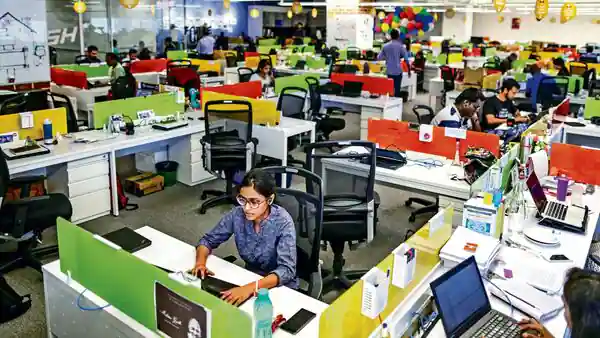The great information technology services slowdown is coming
First, Tata Consultancy Services Ltd, at an investor meeting, said it is seeing some weakness among some of its clients in the manufacturing and life sciences space in Europe.
Next, Accenture Plc reported that its consulting arm bagged fewer orders than its outsourcing business during the June-August quarter.
The thirty-sixth edition of Twich+ looks at why these developments have made investors jittery.
Last Thursday, Accenture reported a 22% full-year dollar revenue growth to end with $61.6 billion in revenue in the year ended August 2022 (Accenture follows a September-August financial year).
It was a stellar performance: The company added $11.06 billion in incremental revenue last year.
Put simply: Accenture did more new business than Wipro Ltd’s $10.35 billion revenue in the past 12 months.
Consulting business accounted for 56% of Accenture’s revenue.
But bookings in the consulting business totalled $8.45 billion or 46% of the $18.4 billion orders in the June-August period.
Now, businesses become risk averse to implementing transformational technology projects during periods of uncertainty or when there are fears of economic slowdown.
Understandably, analysts point to a strong correlation between consulting business and economic growth.
“A weaker economy has historically led to either a slowdown or decline in Accenture’s consulting bookings, especially during the great financial crisis," Keith Bachman, an analyst with BMO Capital Markets, wrote in a 20 September note.
For now, it is unclear if slower growth in consulting business will impact Accenture’s overall revenue growth in the current financial year and if this softness will be witnessed in the IT outsourcing space.
Accenture’s management did not address this question in a post-earnings interaction with analysts.
Accenture last reported fewer new orders in its consulting arm exactly two years back during the June-August period of 2020. Then the world was wrought by the covid-19 pandemic. However, during the last two years, most large companies upped their spending on making themselves digitally ready (read more spending on cloud computing). This was because Fortune 500 companies needed help re-architecting for work from home.
Accenture and other IT technology services firms offered such services and benefitted as the country’s five largest IT services companies grew at the fastest pace last year in a decade.
But the problem this time is that rising inflation and other macroeconomic headwinds will make manufacturing companies and retailers rethink spending more on technology.
This brings to us what TCS articulated to investors earlier this month.
TCS’s chief financial officer Samir Seksaria met with investors at CLSA’s annual technology event on 14 September. Seksaria reaffirmed that there is no consequential business impact for now but nonetheless flagged some pockets of weakness.
“TCS management highlighted a steady operative environment even though clients in Europe (30% revenue share) are increasingly watchful of the macro-economic environment," CLSA analyst Pankaj Kapoor wrote in a note on 14 September. “In Europe, it has seen softness in Manufacturing (10%) and Life Sciences (10%) verticals."
Agreed, it can be argued that the softness highlighted by TCS could be limited to its clients in manufacturing and life sciences.
But weaker hiring numbers at Accenture for two straight quarters suggest that more businesses globally are feeling the pinch.
Accenture’s net hiring during the fourth quarter totalled 10,947 employees, the lowest in the last eight quarters. The company added 11,928 people to its workforce in the third quarter.
This news of slow consulting growth at Accenture and TCS underlining some weakness in a few business segments comes amid the growth at the three “Hyperscalers" (AWS, Azure and Google Cloud) from Silicon Valley is ebbing, a point your writer had made in the twenty-eighth edition of this newsletter, dated 4 August.
Most companies outline their technology budgets at the start of the year. For this reason, it is unlikely that there will be any clarity on the demand environment when Indian IT firms declare their second-quarter earnings next month.
Still, investors should brace themselves that the growth will be lower in the current financial year compared to last year, and on the currently available information, even less in the financial year 2023-24. It looks difficult for IT services firms to defy the falling tide, especially when several warning lights are flashing red.
Download The Mint News App to get Daily Market Updates.
More
Less








Gloss